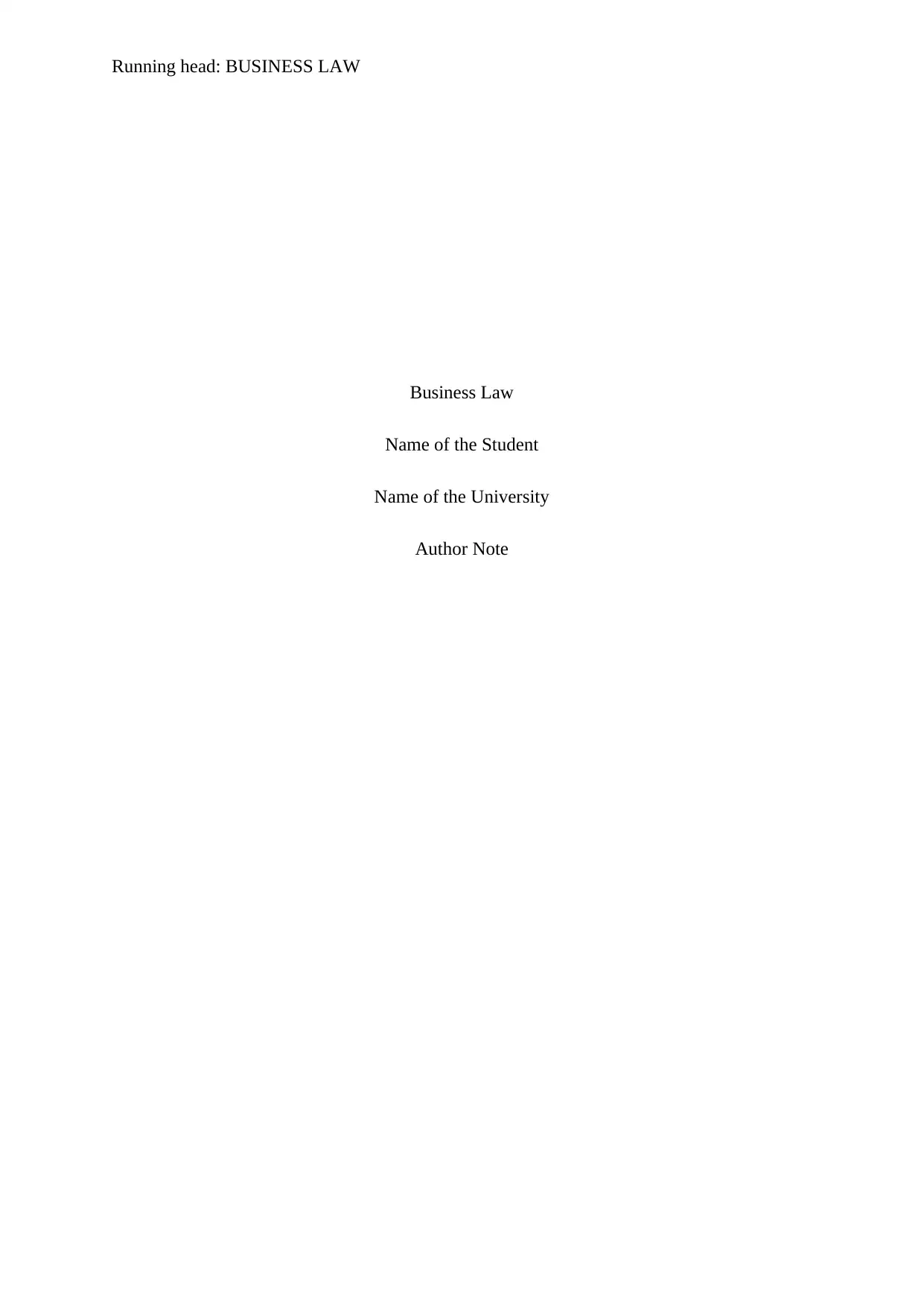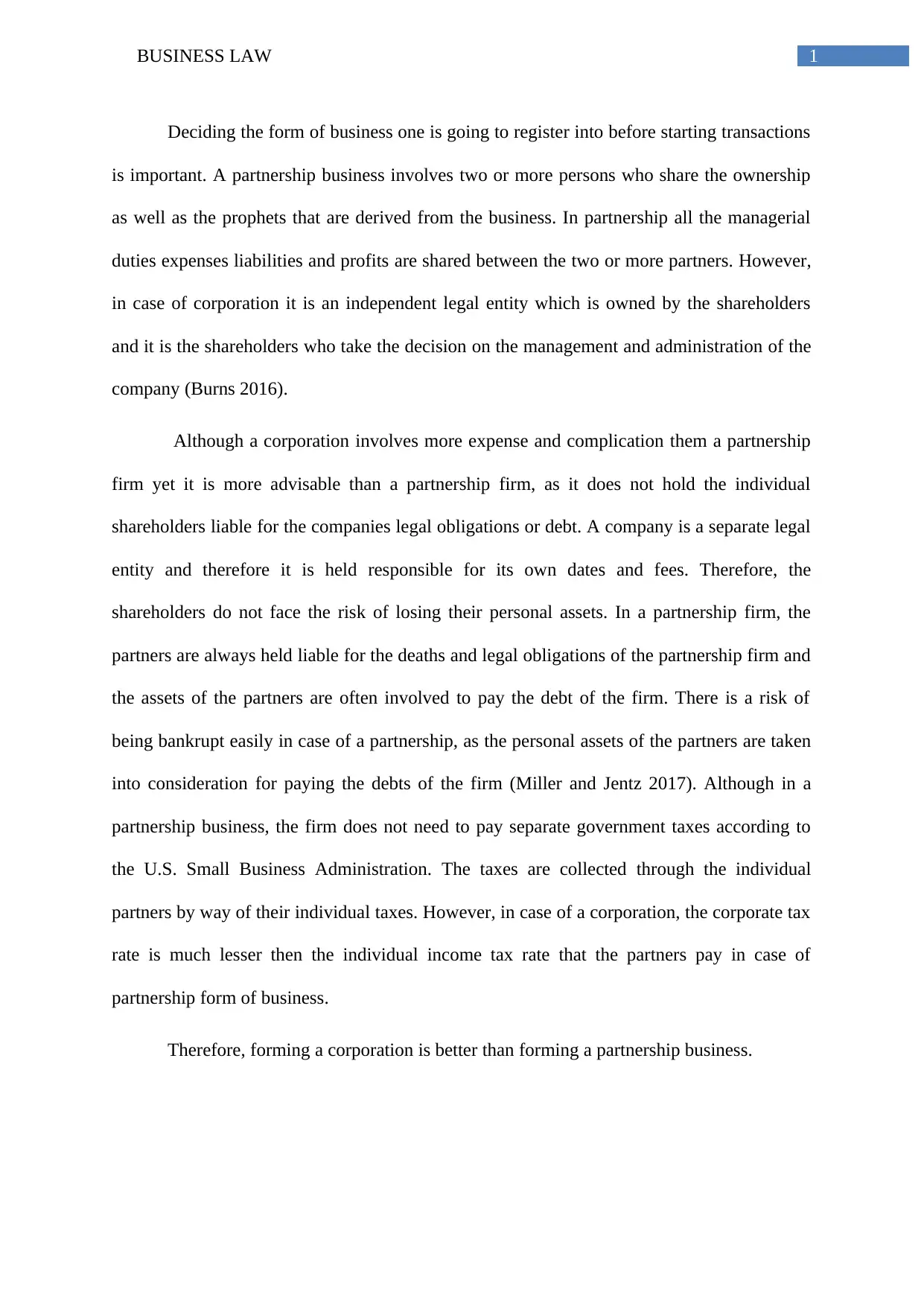Business Law: Comparative Analysis of Corporation and Partnership
VerifiedAdded on 2023/04/23
|3
|395
|421
Essay
AI Summary
This essay provides a comparative analysis of partnership and corporation business structures under business law, highlighting the advantages and disadvantages of each. It emphasizes that while partnerships involve shared ownership, management, and profits among partners, corporations are independent legal entities owned by shareholders. The essay argues that forming a corporation is generally better due to the limited liability it offers to shareholders, protecting their personal assets from business debts and legal obligations. Although partnerships may have simpler tax structures, corporations often benefit from lower corporate tax rates, making them a more financially sound choice despite the initial complexities and expenses.
1 out of 3










![[object Object]](/_next/static/media/star-bottom.7253800d.svg)